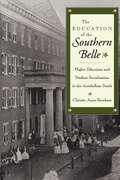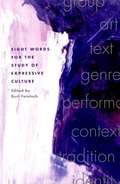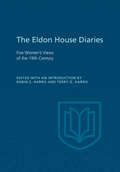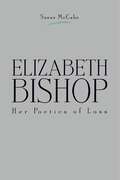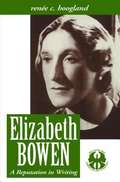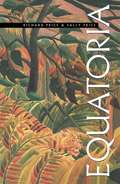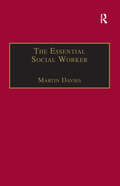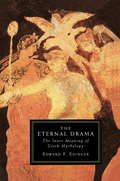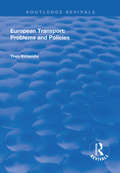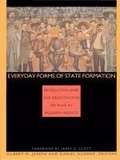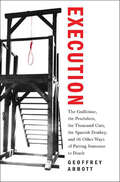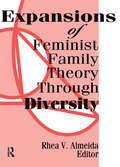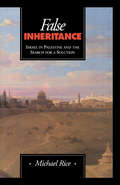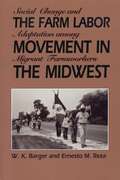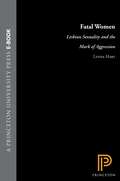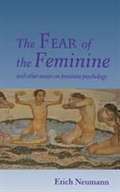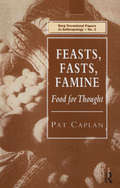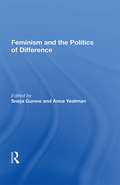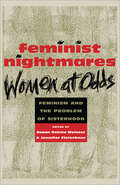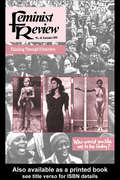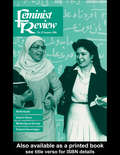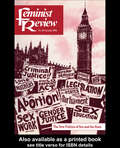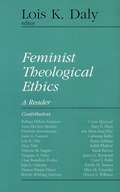- Table View
- List View
The Education of the Southern Belle: Higher Education and Student Socialization in the Antebellum South
by Christie Anne FarnhamThe American South before the Civil War was the site of an unprecedented social experiment in women's education. The South offered women an education explicitly designed to be equivalent to that of men, while maintaining and nurturing the gender conventions epitomized by the ideal of the Southern belle. This groundbreaking work provides us with an intimate picture of the entire social experience of antebellum women's colleges and seminaries in the South, analyzing the impact of these colleges upon the cultural construction of femininity among white Southern women, and their legacy for higher education. Christie Farnham investigates the contradiction involved in using a male-defined curricula to educate females, and explores how educators denied these incongruities. She also examines the impact of slavery on faculty and students. The emotional life of students is revealed through correspondence, journals, and scrapbooks, highlighting the role of sororities and romantic friendships among female pupils. Farnham ends with an analysis of how the end of the Civil War resulted in a failure to keep up with the advances that had been achieved in women's education. The most comprehensive history of this brief and unique period of reform to date, The Education of the Southern Belle is must reading for anyone interested in women's studies, Southern history, the history of American education, and female friendship.
Eight Words for the Study of Expressive Culture
by Burt FeintuchGroup. Art. Text. Genre. Performance. Context. Tradition. Identity. No matter where we are--in academic institutions, in cultural agencies, at home, or in a casual conversation--these are words we use when we talk about creative expression in its cultural contexts. Eight Words for the Study of Expressive Culture is a thoughtful, interdisciplinary examination of the keywords that are integral to the formulation of ideas about the diversity of human creativity, presented as a set of essays by leading folklorists. Many of us use these eight words every day. We think with them. We teach with them. Much of contemporary scholarship rests on their meanings and implications. They form a significant part of a set of conversations extending through centuries of thought about creativity, meaning, beauty, local knowledge, values, and community. Their natural habitats range across scholarly disciplines from anthropology and folklore to literary and cultural studies and provide the framework for other fields of practice and performance as well. Eight Words for the Study of Expressive Culture is a much-needed study of keywords that are frequently used but not easily explained. Anchored by Burt Feintuch's cogent introduction, the book features essays by Dorothy Noyes, Gerald L. Pocius, Jeff Todd Titon, Trudier Harris, Deborah A. Kapchan, Mary Hufford, Henry Glassie, and Roger D. Abrahams.
Eldon House Diaries: Five Women's Views of the 19th Century
by Robin Harris Terry HarrisEldon House is a distinctive element in the historical townscape of London, Ontario. By the mid-nineteenth century, its original owners, John and Amelia Harris, were prominent members of society in that dynamic community. Their children grew up in the affluent and cultured setting of a family whose increasing prosperity advanced with that of London and western Ontario. If London had an elite, the Harris family was part of it, and Eldon House was an important focal point of the social regimen of the day. A considerable corpus of family papers within the Eldon House and prominent among these papers is a collection of diaries that are excerpted in this volume, encapsulating the personalities, activities, and voices of the Harrises of London. These diaries are valuable because of the details of the warp and woof of daily life in the nineteenth century. But, more importantly, they are women's diaries. As such, they speak to us of the verities of personal, domestic, and societal life in the neglected voice of women. Together, they provide a fascinating perspective of these women's lives in, around, and beyond Eldon House.
Elizabeth Bishop: Her Poetics of Loss (G - Reference, Information and Interdisciplinary Subjects)
by Susan McCabeElizabeth Bishop represents a full-scale examination of Bishop's work—poetry, prose, and selected unpublished material—to reveal how personal loss becomes implicated in her vision of self as fluid and unfixed and, at the same time, how gender and sexual identity inform the experience of loss in the act of writing. Susan McCabe argues that Bishop counters modernist claims for an autonomous art object and an impersonal artist; Bishop's writing never represents an escape into perfected forms, but instead calls attention to the processes of language that construct identity. McCabe emphasizes how personal experience is deeply enmeshed with Bishop's poetics. Bishop's project returns to her early losses—the death of her father and her mother's madness—and uses them to disclose the instability of the concepts of self or place through a rhetoric of indeterminacy and uncertainty. Although Bishop has recently begun to receive the critical attention she deserves, this book uniquely brings loss to the foreground in connection with identity, gender, and the fashioning of a feminist poetics.
Elizabeth Bowen: A Reputation in Writing
by Renee C. HooglandImmensely popular during her lifetime, the Anglo-Irish writer Elizabeth Bowen (1899-1973) has since been treated as a peripheral figure on the literary map. If only in view of her prolific output--ten novels, nearly eighty short stories, and a substantial body of non- fiction--Bowen is a noteworthy novelist. The radical quality of her work, however, renders her an exceptional one. Surfacing in both subject matter and style, her fictions harbor a subversive potential which has hitherto gone unnoticed. Using a wide range of critical theories-from semiotics to psychoanalysis, from narratology to deconstruction-this book presents a radical re-reading of a selection of Bowen's novels from a lesbian feminist perspective. Taking into account both cultural contexts and the author's non-fictional writings, the book's main focus is on configurations of gender and sexuality. Bowen's fiction constitutes an exploration of the unstable and destabilizing effects of sexuality in the interdependent processes of subjectivity and what she herself referred to as so-called reality.
Engaging the Past: The Uses of History Across the Social Sciences
by Eric H. MonkkonenVigorous historical exploration has increased across the social sciences in the past two decades. Originally published as a series of articles in the journal Social Science History, the essays in this volume provide a guide to historical social science by surveying the use of historical data and methodologies in anthropology, sociology, political science, economics, and geography.Each essay in Engaging the Past pays close attention to the unique problems and methods associated with its particular social scientific discipline. By exploring questions raised by both contemporary and more established works within each field, the authors show that some of the best and most innovative research in each of the social sciences includes a strong historical component. Thus, as Eric H. Monkkonen's introduction shows, these essays taken together make it clear that historical research provides a significant key to many of the major issues in the social sciences.Intended for the growing community of both social scientists and historians interested in reading or researching historically informed social science, Engaging the Past suggests future directions that might be taken by this work. Above all, by providing a set of user's guides written by respected social scientists, it encourages future boundary crossings between history and each of the social sciences.Contributors. Andrew Abbott, Richard Dennis, Susan Kellog, Eric H. Monkkonen, David Brian Robertson, Hugh Rockoff
Equatoria
by Richard Price Sally PriceA postmodern romp through the rain forest, Equatoria is both travelogue and cultural critique. On the right-hand pages, the Prices chronicle their 1990 artifact-collecting expedition up the rivers of French Guiana, and on the left, stage an accompanying sideshow that enlists the help of Jonathan Swift, Joseph Conrad, Gabriel Garcia-Marquez, Alex Haley, James Clifford, Eric Hobsbawn, Germaine Greer, and even the noted anthropologist James Goodfellow. Charged with acquiring objects for a new museum, the Prices kept a log of their day-to-day adventures and misadventures, constantly confronting their ambivalence about the act of collecting, the very possibility of exhibiting cultures and the future of anthropology. Probing the nature of museums, collecting, and power relations between "us" and "them," the Prices raise many troubling questions.
The Essential Social Worker: An Introduction to Professional Practice in the 1990s
by Martin DaviesThe third edition of The Essential Social Worker has been radically revised and updated and contains an entirely new chapter providing a clear outline of the historical and policy-related framework within which social work operates in areas of particular practice - child care, disability, mental health, old age and criminal justice. The Essential Social Worker defends the idea of a broadly based profession seeking to maintain disadvantaged people in the community. It bravely confronts the shallowness of many short-term fashions and argues that social work is a uniquely humane contributor to the achievement of welfare in the 1990s and beyond. A careful reading of The Essential Social Worker will ensure that the student gains an understanding of the role of social work in a complex urban society and develops an awareness of the debates which surround it. Social work is often subject to public criticism, but, as the author shows, it has continued to grow in scale and in influence throughout the 20th century and although its structure will continue to evolve, social work will remain essential in any society which regards itself as democratic and humane.
The Eternal Drama: The Inner Meaning of Greek Mythology
by Edward EdingerZeus, Aphrodite, Apollo, Artemis, Athena--do the gods and goddesses of Greece have anything to say to us that we haven't already heard? In this book, based on a series of his lectures, the eminent Jungian analyst and writer Edward F. Edinger revisits all the major figures, myths, oracles, and legends of the ancient Greek religion to discover what they can still reveal--representing, as they do, one of the religious and mythic foundations of Western culture. Building on C. G. Jung's assertion that mythology is an expression of the deepest layers of mind and soul, Dr. Edinger follows the mythic images into their persistent manifestations in literature and on into our modern lives. He finds that the gods indeed continue to speak as we grow in our capacity to listen and that the myths express the inner energies within all of us as much as ever. Heracles is eternally performing his labors, Perseus is still confronting Medusa, Theseus is forever stalking the Minotaur, and Persephone is still being carried off to life in a new realm.
European Transport: Problems and Policies (Routledge Revivals)
by Theo KiriazidsFirst published in 1994, this volume responds to a key debate in the European Community, extant since the signing of the Single European Act (SEA) in 1986, in exploring the role of transportation in the creation of a Common Market with free movement of goods, people, capital and services. Critical of the EC’s compromise on transport between economic principles and political realities, this book seeks to address issues of international cooperation, lack of common approach and differences in national law and political systems along with the question of finance. Theo Kiriazidis responds to the EC’s argument on each transport sector in turn and examines how the existing transport system in 1994 could be better managed.
Everyday Forms of State Formation: Revolution and the Negotiation of Rule in Modern Mexico
by Gilbert M. Joseph Daniel NugentEveryday Forms of State Formation is the first book to systematically examine the relationship between popular cultures and state formation in revolutionary and post-revolutionary Mexico. While most accounts have emphasized either the role of peasants and peasant rebellions or that of state formation in Mexico's past, these original essays reveal the state's day-to-day engagement with grassroots society by examining popular cultures and forms of the state simultaneously and in relation to one another.Structured in the form of a dialogue between a distinguished array of Mexicanists and comparative social theorists, this volume boldly reassesses past analyses of the Mexican revolution and suggests new directions for future study. Showcasing a wealth of original archival and ethnographic research, this collection provides a new and deeper understanding of Mexico's revolutionary experience. It also speaks more broadly to a problem of extraordinary contemporary relevance: the manner in which local societies and self-proclaimed "revolutionary" states are articulated historically. The result is a unique collection bridging social history, anthropology, historical sociology, and cultural studies in its formulation of new approaches for rethinking the multifaceted relationship between power, culture, and resistance.Contributors. Ana María Alonso, Armando Bartra, Marjorie Becker, Barry Carr, Philip Corrigan, Romana Falcón, Gilbert M. Joseph, Alan Knight, Florencia E. Mallon, Daniel Nugent, Elsie Rockwell, William Roseberry, Jan Rus, Derek Sayer, James C. Scott
Execution: The Guillotine, the Pendulum, the Thousand Cuts, the Spanish Donkey, and 66 Other Ways of Putting Someone to Death
by Geoffrey AbbottIn his own darkly humorous style, Geoffrey Abbott describes the instruments used and their effectiveness and reveals the macabre origins of familiar phrases such as "gone west" or "drawn a blank," as well as the jargon of the underworld. He covers everything from the preparation of the victim to the disposal of the body. Execution is everything you ever wanted to know about the ultimate penalty---and a lot you never thought to ask. It includes such hair-raising categories as: · Cave of Roses: A rare Swedish method of execution in which the victim was confined to a cave full of snakes and poisonous reptiles.· Bastinado: Involved the victim being caned gently and rhythmically with a lightweight stick on the soles of the feet until the mental collapse and eventual death of the victim.· Sewn in an Animal's Belly: A living person is sewn into the belly of an animal and left to die.· The Spanish Donkey: This method of torture consisted of seating a victim on top of a wall that resembled an inverted "v" with weights attached to the ankles, the weights slowly increased until the victim's body split in two.· Iron Chair: The victim is tied to an iron armchair and pushed nearer and nearer to a blazing fire. · Sawn in Half: Victims are secured in a standing position, pinned between two wide boards fixed between a stake driven deep into the ground while two executioners (one on each side) would wield a long, two-handled saw downwards through the boards. Execution is a unique fascinating look at the grim and gritty history of sanctioned death.
Expansions of Feminist Family Theory Through Diversity
by Rhea AlmeidaExpansions of Feminist Family Theory Through Diversity reconstructs feminist family therapy to include issues of race, class, gender, culture, and sexual orientation. The contributors assist you with creating possible solutions to mental health problems in all types of families. This will enable you to find specific working strategies to help solve the problems inherent in families of diversity. This book also provides you with several conceptual models for approaching the sociopolitical context of family therapy.This collection challenges family therapy as an existing context of power privilege and expands feminist principle and diversity into subject areas such as intimate violence among the racially and sexually different, heterosexual privilege in family life, homosexual and racial oppression, social inequalities within the therapeutic story, and, from Monica McGoldrick, reflections on self as viewed by the multiple social systems of oppression.Clinicians and practicing feminist therapists can find insight into many general topic areas relevant to daily practice, such as: race as a social construct culture in the context of race, class, gender, and sexual orientation assessment and treatment of violence in heterosexual and homosexual families a social critique of therapeutic inequalities addressing the social inequalities in the delivery of mental health the politics of privilege and privacy in family lifeExpansions of Feminist Family Theory Through Diversity is organized in a way that makes it central to all clinical practice. It can be used as a guidebook for family therapists, social workers, counselors (guidance, clergy, and counseling programs) and psychologists who deal with diverse families and their problems.
False Inheritance
by RiceFirst Published in 1994. Routledge is an imprint of Taylor & Francis, an informa company.
The Farm Labor Movement in the Midwest: Social Change and Adaptation among Migrant Farmworkers
by W. K. Barger Ernesto M. RezaThe Farm Labor Organizing Committee (FLOC) was founded by Baldemar Velasquez in 1967 to challenge the poverty and powerlessness that confronted migrant farmworkers in the Midwest. This study documents FLOC's development through its first quarter century and analyzes its effectiveness as a social reform movement. Barger and Reza describe FLOC's founding as a sister organization of the United Farm Workers (UFW). They devote particular attention to FLOC's eight-year struggle (1978-1986) with the Campbell Soup company that led to three-way contracts for improved working conditions between FLOC, Campbell Soup, and Campbell's tomato and cucumber growers in Ohio and Michigan. This contract significantly changed the structure of agribusiness and instituted key reforms in American farm labor. The authors also address the processes of social change involved in FLOC actions. Their findings are based on extensive research among farmworkers, growers, and representatives of agribusiness, as well as personal involvement with FLOC leaders and supporters. "
Fatal Women: Lesbian Sexuality and the Mark of Aggression
by Lynda HartA groundbreaking and provocative look at how violent women have been represented in literature, plays, film, and performanceFatal Women builds a complex and original theory of how the shadow of the lesbian animates representations of violent women, from the Victorian novel to films depicting women who kill. Starting from the historical link between criminality and sexual deviancy, Lynda Hart critiques constructions of gender, race, class, sexualities, and the cultural politics of the 1990s. Her introductory chapter constructs a theory of female violence across the discourses of sexology, criminology, and psychoanalysis. Subsequent chapters detail this theory in the Victorian novel and stage sensation Lady Audley&’s Secret; Frank Wedekind&’s Lulu Plays, which introduced the &“invert&” to the European stage; the films Thelma and Louise, Mortal Thoughts, and Basic Instinct; the political intersection of race and gender in Single White Female; the performance art of Karen Finley in the context of the censorship debates; the fate of Aileen Wuornos, dubbed the first &“female serial killer&” by the FBI; and the Split Britches&’ performance Lesbians Who Kill.A major contribution to lesbian theory and cultural studies, Fatal Women is certain to be read widely by scholars, students, and anyone interested in the politics of representation.
The Fear of the Feminine and Other Essays on Feminine Psychology (Bollingen Series LXI #4)
by Erich NeumannThese essays by the famous analytical psychologist and student of creativity Erich Neumann belong in the context of the depth psychology of culture and reveal a prescient concern about the one-sidedness of patriarchal Western civilization. Neumann recommended a "cultural therapy" that he thought would redress a "fundamental ignorance" about feminine and masculine psychology, and he looked for societal healing to a "matriarchal consciousness" that forms the bridge between the feminine and the creative. Brought together here for the first time, the essays in the book discuss the psychological stages of woman's development, the moon and matriarchal consciousness, Mozart's Magic Flute, the meaning of the earth archetype for modern times, and the fear of the feminine. In Mozart's fantastic world, Neumann saw a true Auseinandersetzung--the conflict and coming-to-terms with each other of the matriarchal and the patriarchal worlds. Developing such a synthesis of the feminine and the masculine in the psychic reality of the individual and of the collective was, he argued, one of the fundamental, future-oriented tasks of both the society and the individual.
Feasts, Fasts, Famine: Food for Thought (Occasional Papers In Anthropology Ser. #Vol. 2)
by Pat CaplanThis study deals with three domains of food which raise complex epistemological, political and moral issues. Through an examination of a wide range of material drawn from anthropology, history, literature and political economy, the author discusses the relationship between food and entitlement, gender, notions of the body and development. Food is shown to be a powerful metaphor for our sense of self, our social and political relations, our cosmology and our global system.
Feeling Global: Internationalism in Distress (Cultural Front #5)
by Bruce RobbinsIs global culture merely a pale and sinister reflection of capitalist globalization? Bruce Robbins responds to this and other questions in Feeling Global, a crucial document on nationalism, culturalism, and the role of intellectuals in the age of globalization. Building on his previous work, Robbins here takes up the question of the status of international human rights. Robbins' conception of internationalism is driven not only by the imperatives of global human rights policy, but by an understanding of transnational cultures, thus linking practical policymaking to cultural politics at the expense of neither. Robbins' cultural criticism, in other words, affords us much more than an understanding of how culture "shapes our lives." Instead, Robbins shows, particularly in his discussions of Martha Nussbaum, Richard Rorty, Susan Sontag, Michael Walzer and others, how "culture" itself has become a term that blocks--for commentators on both the right and the left--serious engagement with the contemporary cosmopolitan ideal of a nonuniversalist discourse of human rights. Rescuing "cosmopolitanism" itself from its connotations of leisured individuals loyal to no one and willing to sample all cultures at will, Feeling Global presents a compelling way to think about the ethical obligations of intellectuals at a time when their place in the new world order is profoundly uncertain.
Feminism And The Politics Of Difference
by Anna Yeatman Sneja GunewVersions of Jacki Huggins's 'Pretty deadly tidda business' have appeared in Hecate vol. 17, no. 1; 1991, I lndyk, ed.; Memory (Southerly 3, 1991) HarperCollins, Sydney, 1991; Second Degree Tampering, Sybylla Feminist Press, Melbourne, 1992. Laleen Jayamanne's 'Love me tender, love me true ... ' was first published in Framework 38139, 1992. A version of Smaro Kamboureli's 'Of black angels and melancholy lovers' appeared in Freelance (Saskatchewan Writers' Guild), xxi, 5 (Dec. 1991-Jan. 1992). Roxana Ng's 'Sexism, racism and Canadian nationalism' appeared in Race, Class, Gender: Bonds and Barriers, Socialist Studies/Etudes Socialistes: A Canadian Annual no. 5, 1989. Trinh Minh-ha's 'All-owning spectatorship' has also appeared in her collection of essays When the Moon Waxes Red, Routledge, NY, 1991.
Feminist Nightmares: Feminism and the Problems of Sisterhood
by Susan Ostrov WeisserThough all women are women, no woman is only a woman, wrote Elizabeth Spelman in The Inessential Woman. Gone are the days when feminism translated simply into the advocacy of equality for women. Women's interests are not always aligned; race, class, and sexuality complicate the equation. In recent years, feminist ideologies have become increasingly diverse. Today, one feminist's most ardent political opponent may well be another feminist. As feminism grows increasingly diverse, the time has come to ask a painful and frequently avoided question: what does it mean for women to oppress women? This pathbreaking, provocative anthology addresses this troublesome dilemma from various feminist perspectives, offering an interdisciplinary collection of writings that widens our understanding of oppression to take into account women who are at odds. The book examines the social, political, and psychological ramifications of this phenomenon, as evidenced in a range of texts, from women's antislavery writing to women's anti-abortion writing, from mother-daughter incest stories to maternal surrogacy narratives, from the Bible to the popular romance nove, from Jane Austen to Alice Walker. The value of the volume is perhaps best summed up by an early response to the idea-This is a book that should never be written; feminists should concentrate on how men oppress women. Ironically, it is precisely because the subject triggers such responses, the authors argue, that a volume such as Feminist Nightmares has become a necessity.
Feminist Review: Issue 45: Thinking Through Ethnicities
by Kum-Kum Bhavnani Ann Marie WolpeFocuses on feminist analyses of race and ethnicity - currently one of the most immediate issues facing feminist thinking. The volume ranges from a study of the social geographes of whiteness in the USA to a variety of perspectives on the break-up in Yugoslavia.
Feminist Review: Issue 47
by Kum-Kum Bhavnani Ann Marie WolpeA unique combination of the activist and the academic, Feminist Review has an acclaimed place within women's studies courses and the women's movement. Feminist Review is produced by a London-based editorial collective and publishes and reviews work by women; featuring articles on feminist theory, race, class and sexuality, women's history, cultural studies, Black and Third World feminism, poetry, photography, letters and much more. Feminist Review is available both on subscription and from bookstores. For a Free Sample Copy of further subscription details please contact Trevina Johnson, Routledge Subscriptions, ITPS Ltd., Cheriton House, North Way, Andover SP10 5BE, UK.
Feminist Review: Issue 48: The New Politics of Sex and the State
by Unknown AuthorA unique combination of the activist and the academic, Feminist Review has an acclaimed place within women's studies courses and the women's movement. Feminist Review is produced by a London-based editorial collective and publishes and reviews work by women; featuring articles on feminist theory, race, class and sexuality, women's history, cultural studies, Black and Third World feminism, poetry, photography, letters and much more. Feminist Review is available both on subscription and from bookstores. For a Free Sample Copy or further subscription details please contact Trevina Johnson, Routledge Subscriptions, ITPS Ltd., Cheriton House, North Way, Andover SP10 5BE, UK.
Feminist Theological Ethics: A Reader
by Lois K. DalyA variety of issues, from reproduction to war, are discussed from an array of perspectives, including womanist and ecofeminist. The book is ideal for feminist theology and feminist ethics classes, and is sure to become an instant classic.
